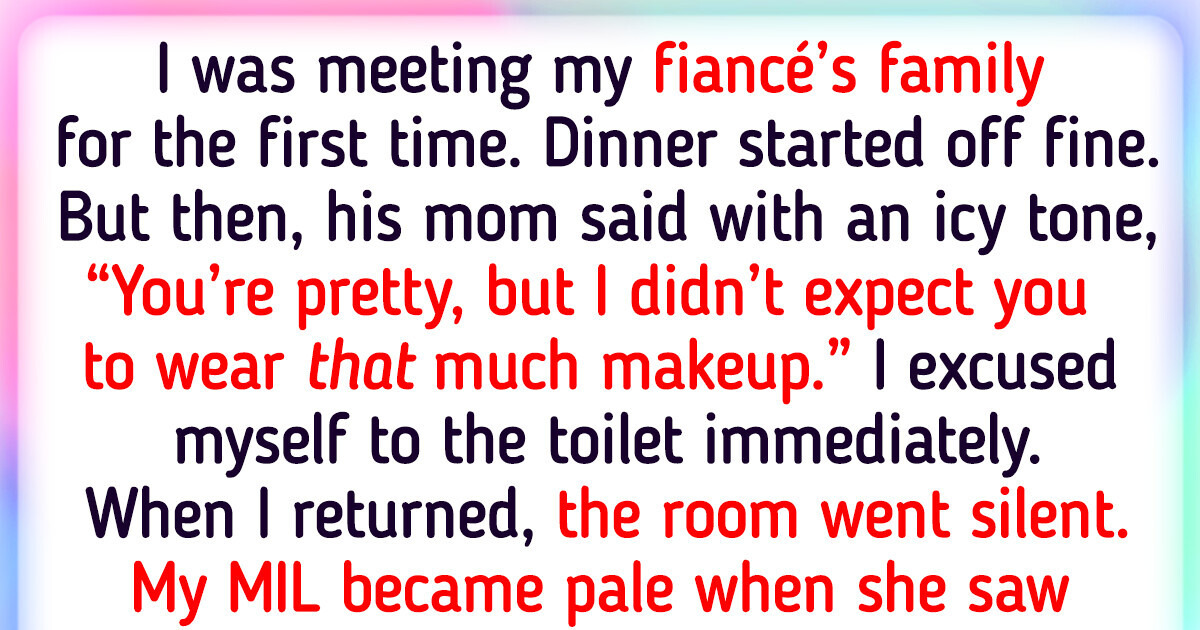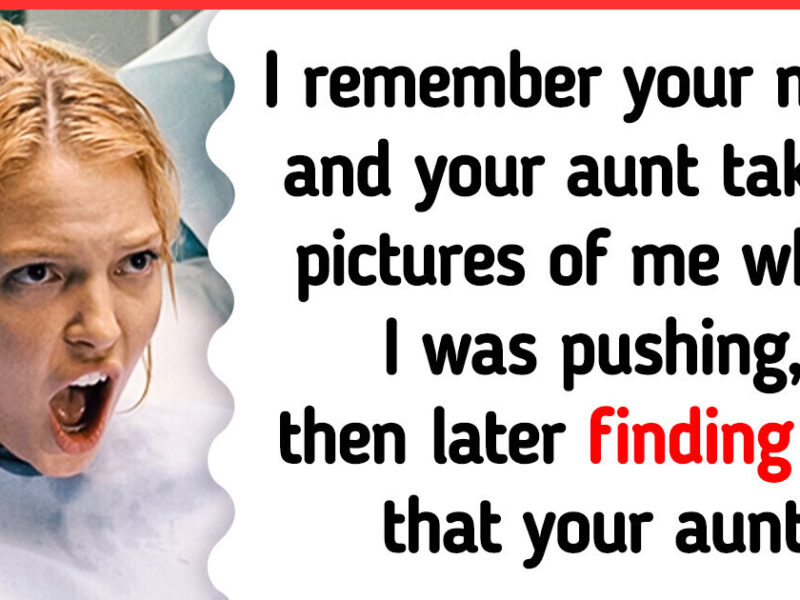My Future MIL Publicly Shamed Me — I Made Her Regret It / Bright Side
First impressions can be nerve-wracking, especially when meeting the family of someone you plan to spend your life with. It’s a time filled with anticipation, excitement, and a little anxiety, as you hope to make a good impression while also being accepted for who you are. However, these encounters don’t always go as planned, and sometimes, unexpected moments reveal deeper truths about relationships and the people in them. Recently, a reader shared her story with Bright Side, recounting a powerful experience that left her questioning everything she thought she knew about her future.
This is Petra’s letter:
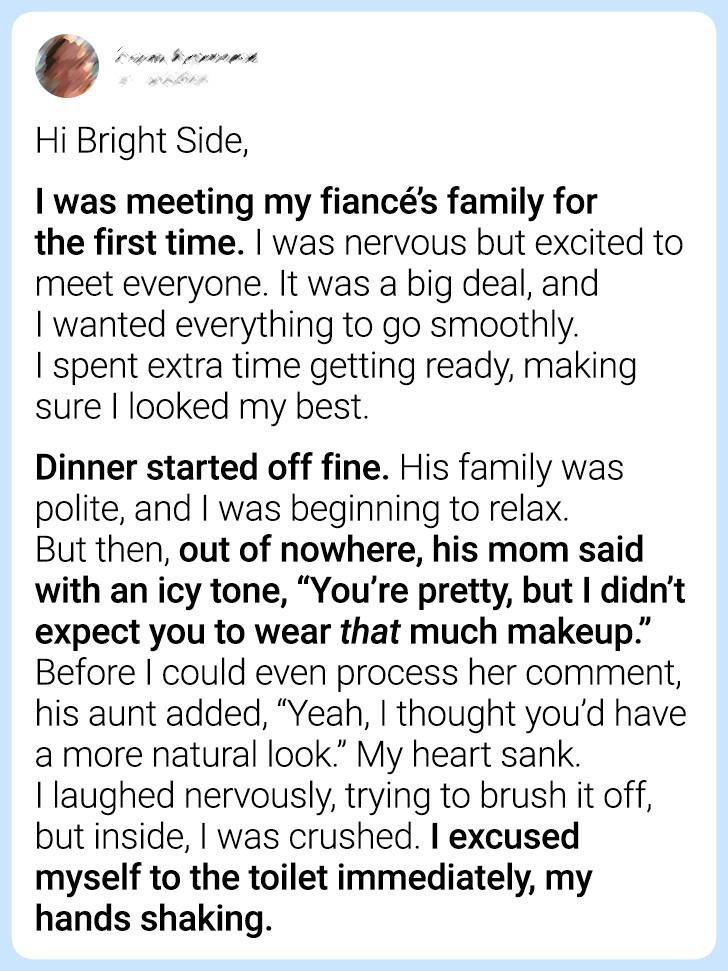
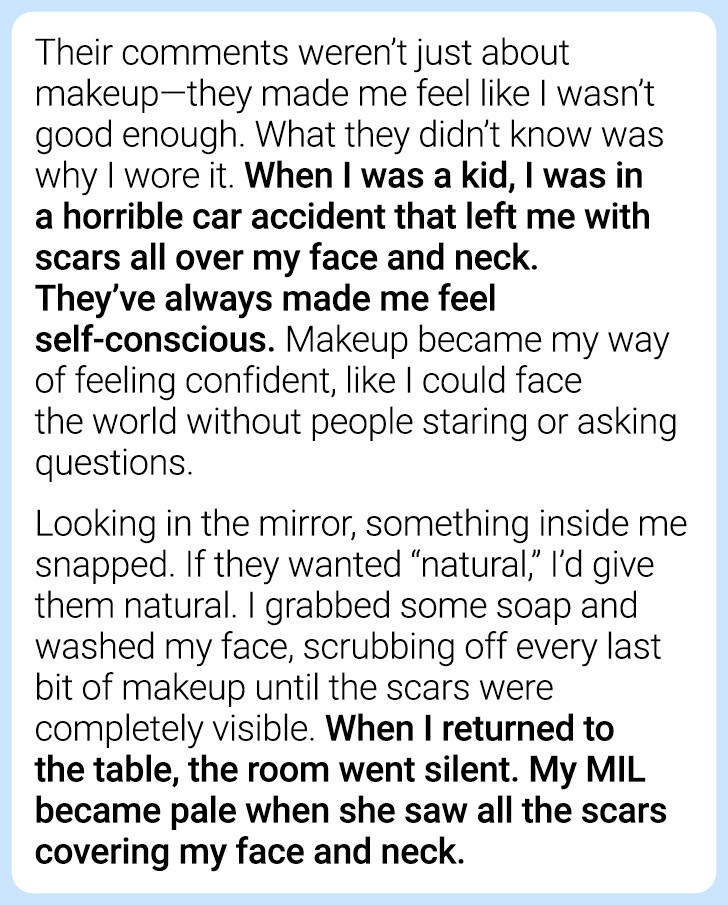
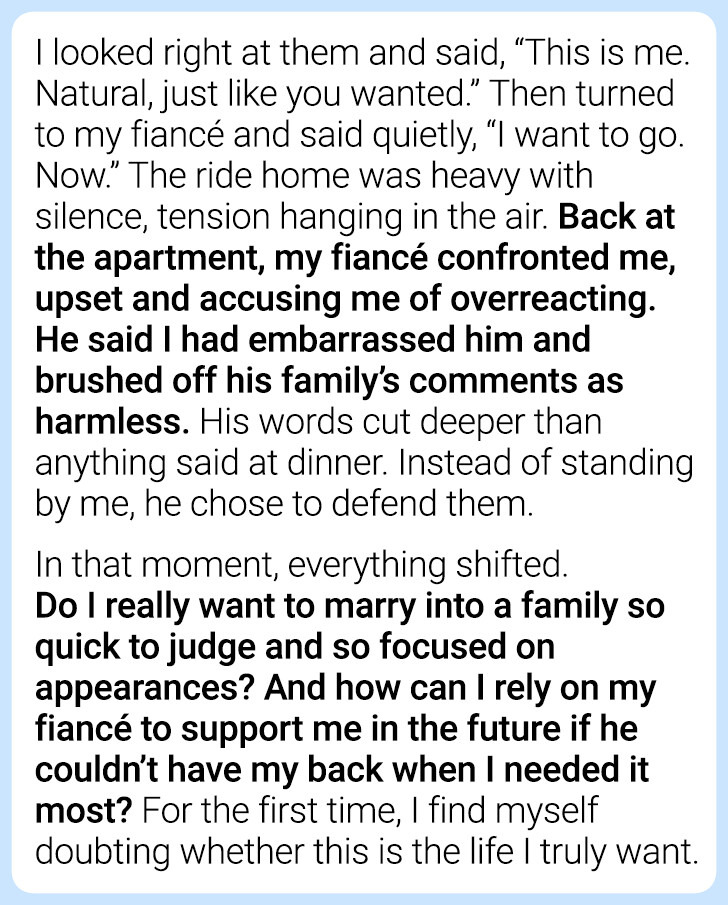
Thank you, Petra, for trusting us with this sensitive issue. We’ve crafted five pieces of tailored advice to help you navigate the complex dynamics with your fiancé and his family, while also evaluating your compatibility before taking the step into married life.
Stand in Your Power
Before making any decisions about your fiancé or his family, take some time to reflect on how you feel about yourself. You showed incredible courage by wiping off your makeup and presenting your true self—a bold statement of self-acceptance. Recognize the strength in that moment and let it guide you moving forward.
If your fiancé cannot appreciate your bravery and instead prioritizes his family’s shallow judgments, consider whether his values align with yours. A strong partnership is built on mutual respect and unwavering support, especially in challenging moments.
Initiate a Calm Conversation
When emotions have settled, sit down with your fiancé and discuss what happened. Share how deeply the comments hurt you, not just because of the makeup, but because of what it represents—your history, scars, and self-worth. Explain that his lack of support made you feel isolated and questioned his ability to stand by you in the future. Ask him to reflect on his reaction and how he could have responded differently.
This conversation could help him see things from your perspective and may be a turning point in your relationship if he’s willing to grow.
Test the Waters with His Family
If you’re considering giving the relationship another chance, think about whether his family might change with time and effort. You could choose to reach out to his mother or aunt and calmly explain why their comments were so painful. Sharing your story might give them a new perspective and encourage empathy.
However, be prepared for resistance—they may not be receptive, and that’s okay. If they fail to acknowledge your feelings, it’s another sign that this dynamic may not work for you long-term.
Seek External Guidance
This situation is emotionally complex and may benefit from an outside perspective. Consider discussing it with a therapist or counselor to explore your feelings about the comments, your scars, and your fiancé’s reaction. They can help you unpack whether your fiancé’s behavior is part of a larger pattern of unsupportive tendencies.
Therapy can also provide tools for setting boundaries and making decisions about your future. Your scars are part of your story, but they don’t define your worth—and a counselor can help reinforce that.
Reevaluate Your Relationship Standards
Take a step back and evaluate what you truly need from a life partner. Do you feel emotionally safe and supported by your fiancé? Can you imagine handling future challenges together with him as your teammate?
His reaction at dinner was dismissive, but that doesn’t have to be the final word. Think about what this incident revealed about his priorities and whether they align with yours. If not, ending the engagement might hurt now but save you from greater pain later.
Sometimes, despite the best intentions, things don’t unfold as hoped. A single thoughtless action can leave a lasting impact, stirring up feelings of frustration and disappointment. Another reader recently shared her experience of how a family dinner with her in-laws took a shocking and unexpected turn. Read her letter here.
